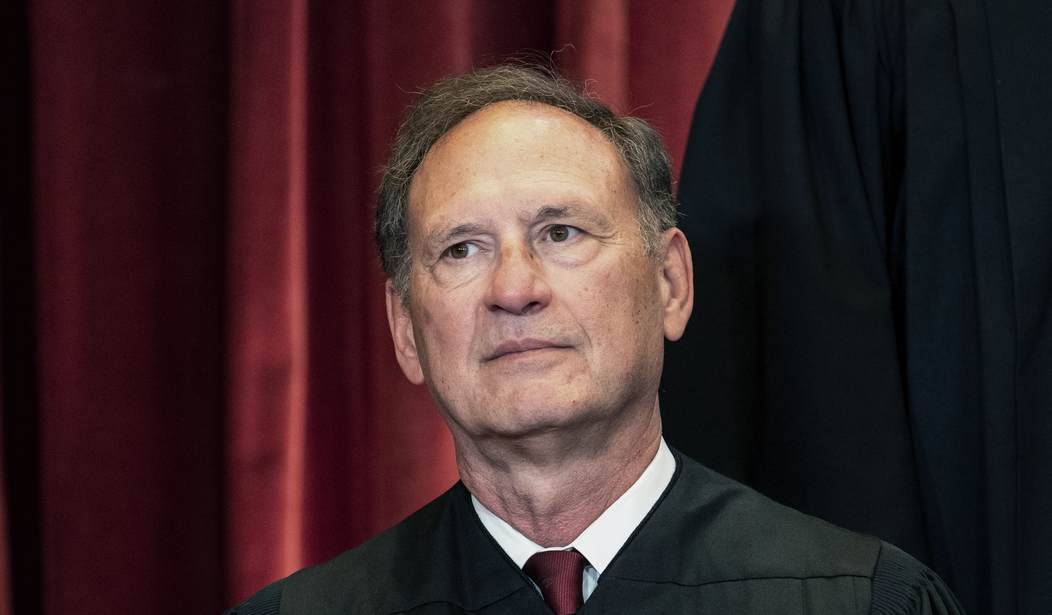Minutes after a first draft of the majority opinion in Dobbs v. Jackson Women's Health Organization leaked, which showed that Roe v. Wade will be overturned, barricades went up around the court. Protesters soon followed, chanting “abortion is healthcare,” and “my body, my choice.” Social media was also ablaze, with leftists in full panic mode. And this is just the start.
While the legal world was shocked by the leak, liberals cheered it on. As Katie reported, Hillary Clinton’s 2016 press secretary wondered if the “brave clerk” who leaked the document was trying to warn the country “in a last-ditch Hail Mary attempt to see if the public response might cause the Court to reconsider.” He wasn’t alone in thinking that.
Based on one line in the draft opinion, however, it appears the conservative justices are ready for the blowback. Emphasis added:
Having shown that traditional stare decisis factors do not weigh in favor of retaining Roe or Casey, we must address one final argument that featured prominently in the Casey plurality opinion.
The argument was cast in different terms, but stated simply, it was essentially as follows. The American people's belief in the rule of Law would be shaken if they lost respect. for this Court as an institution that decides important cases based on principle, not “social and political pressures.” Casey, 505 U. S., at 865. There is a special danger that the principled reasons when the Court overrules a controversial “watershed” decision, such as Roe. Id., at866-867. A decision overruling Roe would be perceived as having been made “under fire” and as a “surrender to political pressure,” id, at 867, and therefore the preservation of public approval of the Court weighs heavily in favor of retaining Roe, see id., at 869.
This analysis starts out on the right foot but ultimately veers off course. The Casey plurality was certainly right that it is important for the public to perceive that our decisions are based on principle, and we should make every effort to achieve that objective by issuing opinions that carefully show how a proper understanding of the law leads to the results we reach. But we cannot exceed the scope of our authority under the Constitution, and we cannot allow our decisions to be affected by any extraneous influences such as concern about the publics reaction to our work. Cf. Texas v. Johnson, 491 U. 8. 397 (1989); Brown v. Board of Education, 347 U.S. 483 (1954). That is true both when we initially decide a constitutional issue and when we consider whether to overrule a prior decision. As Chief Justice Rehnquist explained,“The Judicial Branch derives its legitimacy, not from following public opinion, but from deciding by its best lights whether legislative enactments of the popular branches of Government comport with the Constitution. The doctrine of stare decisis is an adjunct of this duty and should be no more subject to the vagaries of public opinion than is the basic judicial task” Casey, 505 U. S., at963 (Rehnquist, C. J.) In suggesting otherwise, the Casey plurality went beyond this Court's role in our constitutional system.
Recommended
The opinion was written by Justice Samuel Alito and according to Politico's sources, conservative Justices "Clarence Thomas, Neil Gorsuch, Brett Kavanaugh and Amy Coney Barrett – had voted with Alito in the conference held among the justices after hearing oral arguments in December, and that line-up remains unchanged as of this week."

























Join the conversation as a VIP Member